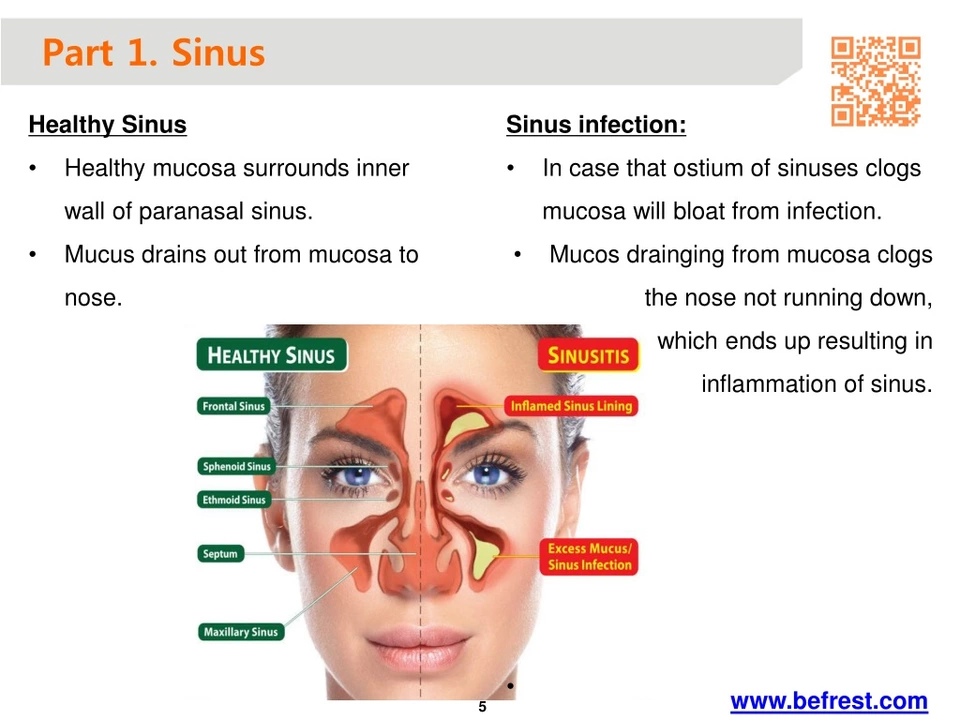Introduction to Azithromycin for Sinus Infections
Azithromycin is a popular antibiotic that is often prescribed to treat a variety of bacterial infections, including sinus infections. As a blogger who has personally experienced sinus infections, I understand how painful and debilitating they can be. In this article, I will be sharing important information about azithromycin, specifically focusing on its use in treating sinus infections. Let's dive into the details and learn more about this medication.
What is Azithromycin and How Does It Work?
Azithromycin is a type of antibiotic belonging to the macrolide class, which also includes erythromycin and clarithromycin. It works by inhibiting the growth and multiplication of bacteria, ultimately leading to their death. This is achieved by interfering with the bacteria's protein synthesis, preventing them from producing the proteins needed for survival.
As a result, azithromycin effectively treats bacterial infections, including sinus infections caused by susceptible bacteria. However, it is important to note that this antibiotic is not effective against viral infections, such as the common cold or flu.
When is Azithromycin Prescribed for Sinus Infections?
Typically, azithromycin is prescribed for sinus infections when other treatment options have not been effective, or when the patient has an allergy to penicillin or other antibiotics. Additionally, certain bacteria that can cause sinus infections, such as Streptococcus pneumoniae and Haemophilus influenzae, are susceptible to azithromycin, making it a suitable treatment choice.
It is crucial to remember that antibiotics should only be used for bacterial infections, as they will not help with viral infections. Your healthcare provider will determine if your sinus infection is likely caused by bacteria and if azithromycin is the appropriate treatment option for you.
Dosage and Duration of Treatment
The dosage and duration of azithromycin treatment for sinus infections can vary depending on factors such as the severity of the infection, patient age, and overall health. Generally, a standard dose of 500 mg per day for three days is prescribed for adults. However, in some cases, a higher dose or a longer duration may be necessary.
It is essential to follow your healthcare provider's instructions and take the prescribed dosage for the entire duration of treatment, even if you start to feel better before the medication is finished. This is because stopping the treatment early can result in the infection returning or the bacteria developing resistance to the antibiotic.
Possible Side Effects of Azithromycin
As with any medication, there are potential side effects associated with azithromycin use. Some common side effects include nausea, vomiting, diarrhea, abdominal pain, and headache. These side effects are typically mild and resolve on their own as your body adjusts to the medication.
However, if you experience more severe side effects, such as difficulty breathing, swelling of the face, lips, or tongue, severe diarrhea, or a severe skin rash, you should contact your healthcare provider immediately, as these may be signs of a serious reaction to the medication. It is important to report any side effects you experience to your healthcare provider, as they may need to adjust your treatment or recommend additional interventions.
Drug Interactions to Be Aware Of
As with any medication, azithromycin may interact with other medications you are currently taking, potentially affecting their effectiveness or increasing your risk of side effects. Some common medications that may interact with azithromycin include antacids containing aluminum or magnesium, blood thinners, certain heart medications, and other antibiotics.
It is crucial to inform your healthcare provider of all medications, supplements, and over-the-counter products you are currently taking to avoid potential drug interactions. They can help determine if azithromycin is safe for you to take and recommend any necessary adjustments to your current medications.
Precautions and Contraindications
Before starting azithromycin treatment for a sinus infection, it is essential to discuss any allergies, medical conditions, or other factors that may affect your ability to safely take this medication. Some precautions and contraindications to be aware of include:
- Allergy to azithromycin, erythromycin, or other macrolide antibiotics
- Liver or kidney disease
- Heart rhythm disorders
- Pregnancy or breastfeeding
Your healthcare provider will evaluate your medical history and determine if azithromycin is an appropriate treatment option for your sinus infection. They may also recommend additional tests or monitoring during your treatment to ensure your safety and the effectiveness of the medication.
Conclusion
In conclusion, azithromycin can be an effective treatment option for sinus infections caused by susceptible bacteria. As with any medication, it is essential to follow your healthcare provider's instructions, be aware of potential side effects and drug interactions, and take necessary precautions. By doing so, you can help ensure a successful and safe treatment experience. If you have any concerns or questions about azithromycin or sinus infections, don't hesitate to reach out to your healthcare provider for guidance.


jalyssa chea
May 20, 2023 AT 11:06Gary Lam
May 21, 2023 AT 05:58Peter Stephen .O
May 22, 2023 AT 10:08Andrew Cairney
May 24, 2023 AT 07:56Rob Goldstein
May 26, 2023 AT 01:24vinod mali
May 27, 2023 AT 12:50Jennie Zhu
May 29, 2023 AT 03:39Kathy Grant
May 29, 2023 AT 18:00Robert Merril
May 31, 2023 AT 10:32Noel Molina Mattinez
May 31, 2023 AT 10:44Roberta Colombin
June 1, 2023 AT 19:01Dave Feland
June 2, 2023 AT 17:47Ashley Unknown
June 2, 2023 AT 18:28Georgia Green
June 3, 2023 AT 15:48Christina Abellar
June 5, 2023 AT 11:21Matt Wells
June 6, 2023 AT 11:47jalyssa chea
June 7, 2023 AT 12:39